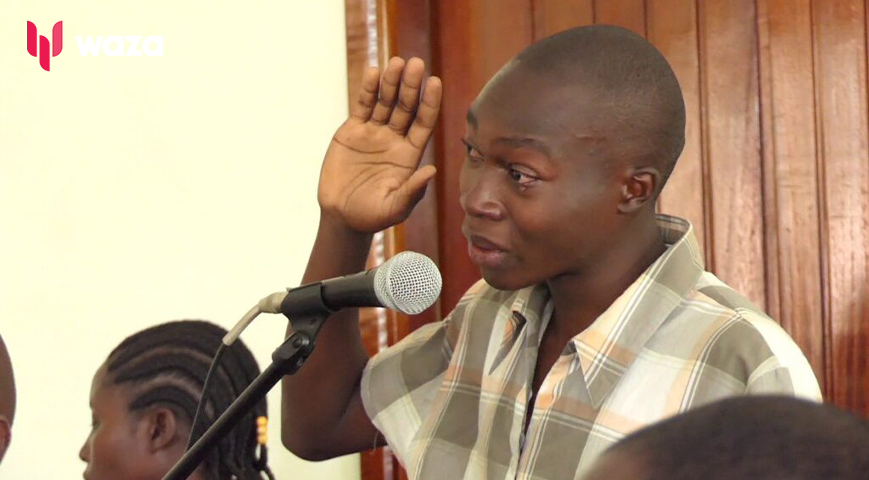A 21-year-old Ugandan TikTok influencer has been sentenced to 32 months in prison for posting a video mocking President Yoweri Museveni.
Emmanuel Nabugodi, who is known for his comedic content and has a following of 20,000 on TikTok, was convicted after pleading guilty to charges including spreading hate speech and disseminating false information about the president. The verdict was delivered by Chief Magistrate Stellah Maris Amabilis in Entebbe on Monday.
The charges stemmed from a video in which Nabugodi staged a mock trial for President Museveni, calling for his public flogging. During the sentencing, Magistrate Amabilis noted Nabugodi’s lack of remorse and stated that the ruling was intended to deter others from using social media to attack individuals, including the president.

Did you read this?
“This court hopes that by the time the convict leaves prison, he will have learned that abusing others for content is unacceptable,” she said.
Nabugodi was prosecuted under Uganda’s amended Computer Misuse Act, enacted in 2022, which criminalizes distributing content intended to mock or degrade others. Critics argue that the law is often used to stifle dissent and silence government critics.
Human rights organizations have condemned the ruling, accusing Uganda's government of suppressing free speech under President Museveni, who has been in power since 1986. The US State Department's 2023 human rights report also flagged the misuse of the law to intimidate online critics.
This case follows a series of similar prosecutions targeting social media users in Uganda. In July, Edward Awebwa was sentenced to six years in prison for a TikTok post critical of the government. Three others are currently awaiting trial for related offenses.

The ruling also echoes the plight of prominent Ugandan author Kakwenza Rukirabashaija, who faced charges of "offensive communication" in 2022 after criticizing Museveni and his son online. Rukirabashaija was imprisoned, allegedly tortured, and eventually fled the country.
Rights groups continue to raise alarms over Uganda’s growing crackdown on free expression, with cases like Nabugodi’s highlighting the risks faced by those who criticize the government.









